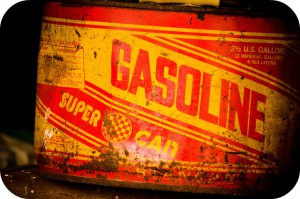 In our previous post, we explored the new crop of startups that are applying Uber’s on-demand business model to other markets. Although these spinoff services aren’t nearly as successful as the original, a number of entrepreneurs remain convinced that they can develop an Uber for everything. We already took a look at the parking service Luxe and grocery delivery app Instacart, both fairly straightforward and simple adaptations of the concept. But startups like Filld and WeFuel take the idea to the extreme by offering customers on-demand gasoline brought straight to their cars.
In our previous post, we explored the new crop of startups that are applying Uber’s on-demand business model to other markets. Although these spinoff services aren’t nearly as successful as the original, a number of entrepreneurs remain convinced that they can develop an Uber for everything. We already took a look at the parking service Luxe and grocery delivery app Instacart, both fairly straightforward and simple adaptations of the concept. But startups like Filld and WeFuel take the idea to the extreme by offering customers on-demand gasoline brought straight to their cars.
If this all sounds a bit disreputable, that’s because it is. Many of these companies simply use pickup trucks to haul hundreds of gallons of gasoline across major cities. They operate with little regulatory oversight and sometimes in open defiance of local fire departments. A spokesman for the San Francisco Fire Department said that such services are “not permitted” and that anybody who sees one in operation should immediately call the authorities. But this warning hasn’t scared many on-demand gas startups out of doing business in the area. “You can never ask for permission because no one will give it,” said CEO Chris Aubuchon of Filld, which began service in San Francisco on May 2.
While this attitude may seem brash, it’s reflecting the same strategy that Uber has employed for years. The company has frequently launched in cities where it hasn’t been given permission to operate. In those cases, Uber hopes that local governments will eventually come around to the company’s way of thinking. Gas delivery startups behave similarly but with the added insecurity that comes with a fleet of fuel-toting trucks roaming cities unchecked. Administrators at the Los Angeles Fire Department are currently drafting policy that will try to allow such deliveries to proceed safely. Still, a spokesman for the LAFD makes it clear that they’re not permitted yet. “Our current fire code does not allow this process,” said Captain Daniel Curry. “It’s just one of these things that nobody has really thought about before—kind of like how Uber popped up out of nowhere.”
Questions:
- Why do companies try to avoid dealing with regulators?
- Is it ethical for companies like Uber or Filld to launch without the permission of local regulators?
Source: Eric Newcomer, “Gas Delivery Startups Want to Fill Up Your Car Anywhere. Is That Allowed?” Bloomberg, May 1, 2016. Photo by Stephen Luke.
